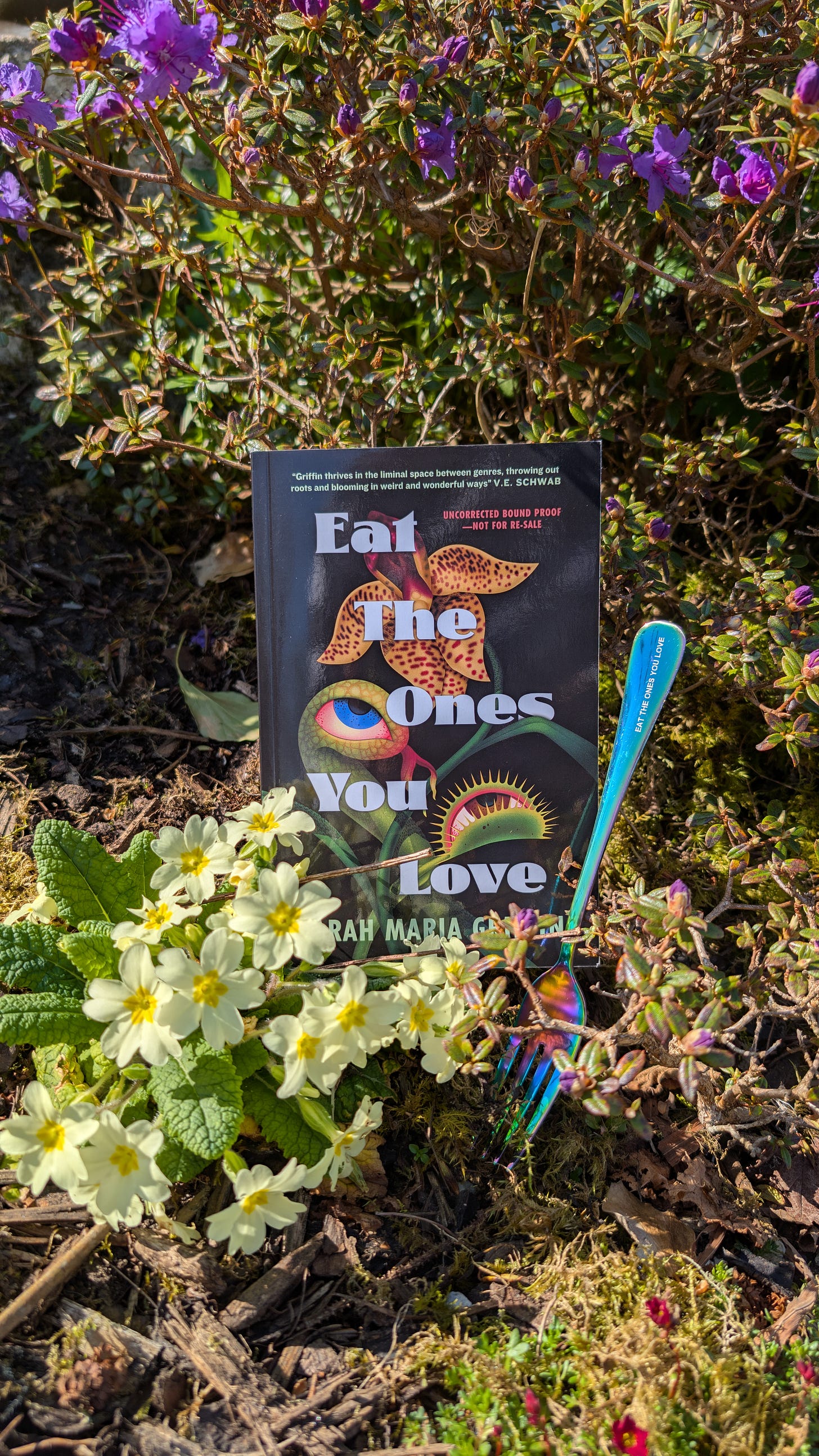Baby’s got a problem. Baby needs fed. Sourcing sustenance for Baby is a full-time gig, and it’s going to take a few keen bodies to get the job done.
Shell has reached a crossroads in her life. Well, more of a spaghetti junction upon which all the signs have been removed and the lights no longer work. Her long term relationship has fallen apart, she’s falling out of love (and gainful employment) with her creative career, and is drifting from her friends quicker than an inflatable on a riptide. To top it all off, she’s back in her childhood bedroom, living under the roof and rules of her parents once again. Let’s just say her confidence and self worth are not at an all time high.
As she wanders the local shopping centre (or ‘mall’ for our Transatlantic brethren), she sees a sign that says ‘Help needed’, and don’t we all need a little help from time to time?
In a swift and unexpected sequence of events, Shell takes a job as a trainee florist in one of the stores, run by the charismatic, mysterious Neve. Shell gravitates towards her sharp humour, worldly demeanor and expertise. There’s damage there, but it’s overshadowed by a confident, authoritative approach to life. Everything Shell is currently lacking.
Then there’s Baby, to whom Neve is indelibly tied. Baby lives at the heart of the shopping centre, and Baby is hungry.
What follows is a clever, introspective analysis of life’s grating challenges, interwoven into an acerbic and memorable story of place, passion and plants.
Eat The Ones You Love is a brand new book from Irish author Sarah Maria Griffin and I’m so glad we have been able to explore it this month as part of the Gothic Book Club. The comments and hot takes which have been shared so far have all been wonderful, and keep them coming as there’s still a few weeks left to delve deeper.
I connected with this work on a number of levels. I enjoyed the premise, of course, but the execution was what made it so resonant for me. Griffin’s writing is sharp and observational, and follows the golden rule of genre fiction; don’t make it feel like genre fiction. Not in an ‘elevated genre’ sense either (that’s a silly concept), but in a way that avoids pastiche, cliche or predictability. Her voice remains her own throughout, which is one of Griffin’s key strengths as a writer. The tone switches from conversational to confessional, with contemplative elements of self-examination. It’s also delightfully gruesome when it needs to be.
It’s been a swift read, and most of you seemed to devour it within the first week. That’s not a bad thing at all. Let’s spend the latter half of the month unpacking.
A few things to consider / discuss:
How would you define the nature of the relationship between Shell and Neve?
The shopping centre becomes a powerful gothic setting. What methods (imagery/style) did Griffin use to achieve this?
What did you think of the book’s examination of friendship and relationships?
How did the sense of place and language compare with other Irish novels you have read?
What three words would you use to describe this book to a friend?
So, keep the conversations flowing, whether it’s on Fable or the socials, or even directly. One thing I love about this Book Club is that it’s relaxed and informal, and people can engage in whatever manner suits them best.
Next month’s title will be announced very soon.




